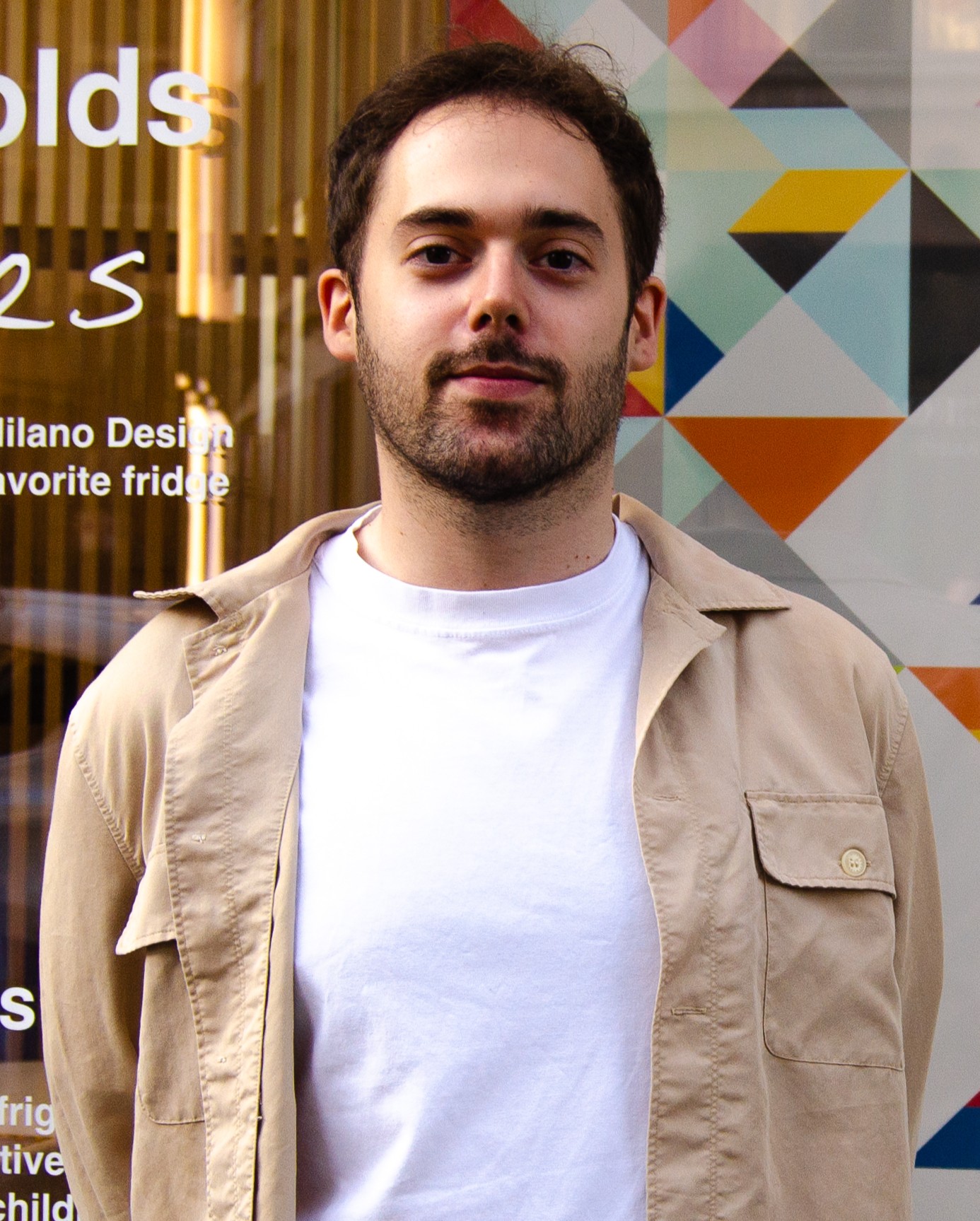About

Matteo De Luca is an industrial and furniture designer whose work combines human-centered thinking with a strong sensitivity to material, form, and narrative. His practice is rooted in a continuous dialogue between concept and execution, where research and experimentation translate into tangible outcomes. With a particular focus on the emotional and cultural dimensions of objects, he explores how design can shape experiences, evoke memories, and foster meaningful connections between people and the things that inhabit their daily lives.
Whether designing furniture, consumer products, or exhibition experiences, Matteo pursues solutions that are not only functional and manufacturable but also layered with meaning, sensorial richness, and long-term relevance.
Originally from Abruzzo and raised in Le Marche, Matteo grew up surrounded by craftsmanship and a deep respect for materials - a foundation that continues to inform his design philosophy.
Matteo holds a BSc in Industrial and Environmental Design from the University of Camerino, where he built a strong foundation in product development and sustainable design. He was later awarded a full scholarship to attend the Master in Product & Furniture Design at Istituto Marangoni in collaboration with Giulio Cappellini, where he explored narrative design, CMF strategy, and brand identity through collaborations with studios such as Nendo, Studio Nichetto, and Magis. He completed his academic path with an MSc in Integrated Product Design at Politecnico di Milano, focusing on Design Thinking, Human-Centered Design, and Strategic Design.
During this time, he developed design concepts in direct collaboration with major international brands including MDF Italia, Acerbis, Ferrero, and Sony, gaining experience in production, brand storytelling, and future-oriented design research. Professionally, Matteo has contributed to a wide range of projects across product, furniture, and event design. He has worked with Faroaese Scale on technical visualization and communication, collaborated on cultural activation initiatives with Zona Sarpi and under the artistic direction of Luca Fois, and participated in the Prisma Project led by Giulio Cappellini.
